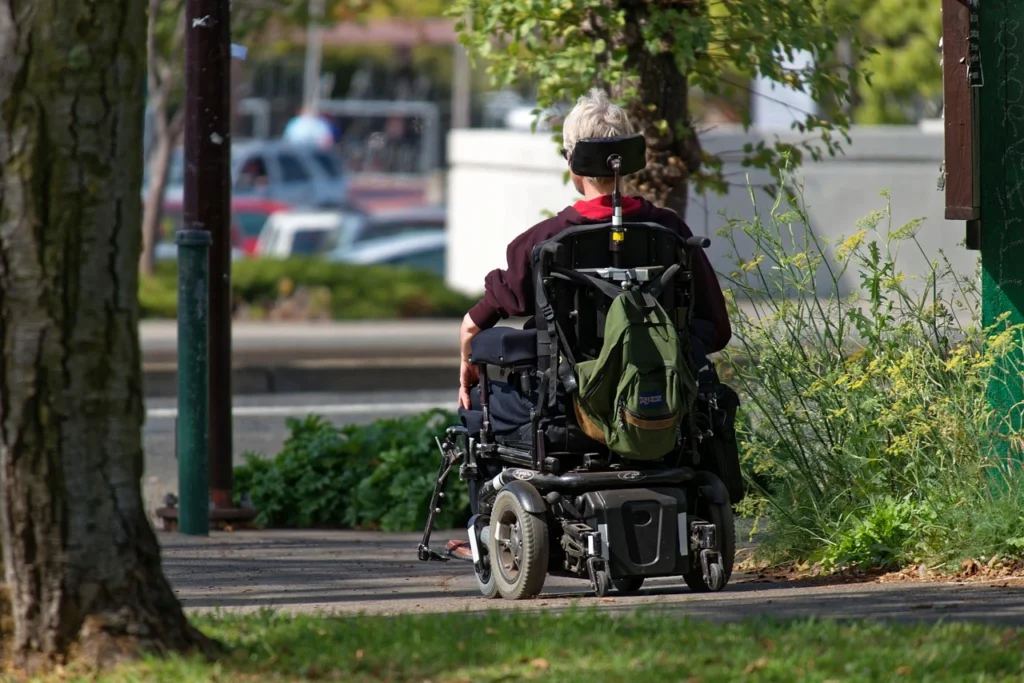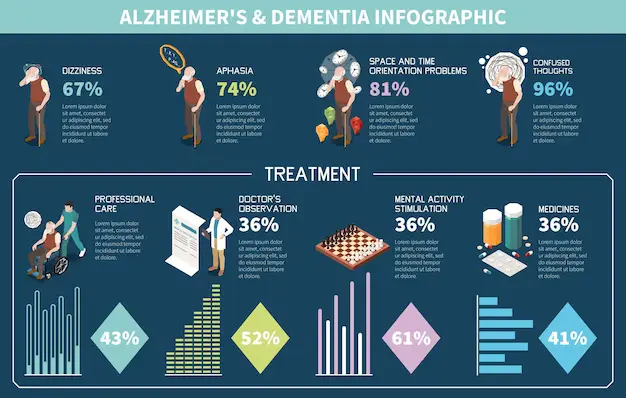Top 10 Memory Care Facilities for Seniors

What is Memory Care?
This post may contain affiliate links, meaning I may earn a commission if you make a purchase, at no extra cost to you. I only recommend products I trust. Thank you for your support.
Memory care is a specialized form of long-term care designed to cater to individuals with memory-related conditions such as dementia and Alzheimer’s disease.
Memory care facilities play a vital role in ensuring the safety, well-being, and quality of life for individuals living with Alzheimer’s disease, dementia, and other memory-related conditions.
These facilities provide an environment specifically designed to address the unique challenges associated with memory loss, which can substantially improve both patient outcomes and family peace of mind.
In this guide, we provide you with some of the top-rated memory care facilities and the benefits of memory care assisted living.

Types of Memory Care Facilities
The types of memory care facilities can vary based on the level of care provided, living arrangements, and integration with other services.
Below are the main categories:
1. Dedicated Memory Care Units within Assisted Living Communities
Many assisted living communities include specialized memory care wings or units. These areas are set apart from general assisted living to cater to residents with memory impairments.
The main features of dedicated memory care units include:
- Secure environments with controlled access to prevent wandering.
- Staff specifically trained in dementia care.
- Tailored activities and therapies designed to maintain cognitive function.
- Integration of supportive services (medication management, nutrition counseling, etc.) alongside other assisted living services.
2. Stand-Alone Memory Care Communities
Some facilities are exclusively dedicated to memory care. These communities are designed from the ground up with dementia and Alzheimer’s care in mind, ensuring a focused and specialized environment.
The main features of stand-alone memory care communities include:
- Purpose-built design with safety, navigation, and comfort in mind.
- Environments that facilitate structured daily routines, reducing anxiety.
- Comprehensive therapeutic programs (art, music, sensory therapies) tailored for memory impairment.
- High staff-to-resident ratios to offer personalized attention and continual monitoring.
3. Continuing Care Retirement Communities (CCRCs) with Memory Care Options
CCRCs, also known as life plan communities, offer a continuum of care from independent living to assisted living and skilled nursing often including dedicated memory care units.
Features of CCRCs include:
- Seamless transitions between varying levels of care as needs evolve.
- Integrated health services and social programming.
- A focus on long-term living arrangements, allowing residents to “age in place.”
- Memory care units that are an integral part of the overall community, promoting social interaction while providing specialized care.
4. Memory Care Day Programs and Adult Day Centers
Not all memory care services require overnight stays. Adult day centers offer daytime programs geared toward individuals with memory impairments.
Features include:
- Structured, stimulating activities during the day including cognitive exercises, physical activities, and social engagement.
- Respite care for family members and caregivers while ensuring participants remain in a safe environment.
- Opportunities for therapeutic interventions and support services such as counseling or health monitoring.
- Often serve as a complement to in-home care, providing a safe setting during daytime hours.
5. Specialized Memory Care Facilities with a Holistic or Therapeutic Focus
Some memory care providers emphasize a holistic approach, combining traditional care with innovative therapies, such as pet therapy, reminiscence therapy, or even Montessori-based programming to enhance overall quality of life.
Features of specialized memory care facilities include:
- Integration of sensory-stimulating environments (calming colors, tailored music, and tactile elements).
- Programs designed to evoke memories and promote emotional well-being.
- A focus on non-pharmacological approaches to manage symptoms.
- Collaborative care models that involve family engagement and community resources.
To 10 Memory Care Facilities for Seniors
Each of these memory care facilities is dedicated to providing a safe, engaging, and supportive environment specifically for individuals with memory impairments.
Their specialized services, from personalized care plans to innovative therapy programs, are designed to improve the quality of life for residents while offering peace of mind to their families.
Here are some of the best memory care facilities for the elderly:
1. Silverado Senior Living, Top Rated Memory Care Facility
Locations:
Multiple locations nationwide, including California, Texas, and Arizona.
Services Offered:
- Specialized memory care programs developed to meet individual needs
- On-site clinical staff ensuring continuous professional support
- Engaging activities to stimulate cognitive function and social interaction
- Pet therapy sessions that help reduce stress and enhance emotional well-being
2. Sunrise Senior Living
Locations:
Facilities across various states, including Florida, Virginia, and California.
Services Offered:
- Tailored memory care programs that incorporate reminiscence therapy
- Life enrichment activities designed to spark memories and encourage social bonding
- 24-hour support with personalized care plans
- A warm, home-like environment that prioritizes safety and comfort
3. Atria Senior Living & Life Guidance Memory Care Facility
Locations:
Nationwide presence with key facilities in New York, Texas, and Ohio.
Services Offered:
- Person-centered care that focuses on the unique needs of each resident
- A secure environment that minimizes confusion and prevents wandering
- Cognitive engagement programs to promote mental stimulation
- Comprehensive services delivered by specially trained memory care staff
4. Brookdale Senior Living
Locations:
Multiple facilities across the United States, with notable centers in Florida, California, and Tennessee.
Services Offered:
- Development of personalized care plans based on individual assessments
- Dementia-friendly dining options that cater to special nutritional needs
- Therapeutic activities such as music and art therapy to enhance mood and cognitive function
- A focus on balancing compassionate care with resident autonomy
5. The Arbor Company
Locations:
Operating in multiple states including Georgia, Florida, and Texas.
Services Offered:
- Montessori-based programming that encourages engagement through familiar, structured activities
- Sensory experiences designed to reduce agitation and stimulate memories
- Family engagement initiatives that foster a strong support network and maintain personal connections
- An innovative approach that integrates care with an educational philosophy
6. Artis Senior Living
Locations:
Facilities in various states, including New Jersey, Ohio, and Maryland.
Services Offered:
- Individualized memory care programs that emphasize personalized support
- Engaging social programs that encourage group interaction and creative expression
- Specialized staff training focused on the challenges of memory impairment
- Comprehensive wellness offerings tailored to enhance both mental and physical health
7. Eskaton, The Trousdale
Locations:
Located in California, with facilities in Sacramento and surrounding areas.
Services Offered:
- Memory support services that focus on holistic, individualized care
- Innovative therapies and modern approaches designed to address cognitive challenges
- A balance between structured routines and flexible activity schedules
- A commitment to improving quality of life through a comprehensive, multidisciplinary care model
8. Elmcroft Senior Living & Chronicles Memory Care
Locations:
Nationwide coverage, with centers in Kentucky, Pennsylvania, and Florida, among others.
Services Offered:
- A team of specially trained staff dedicated to memory care
- Secure living environments that are designed to reduce the risks associated with dementia
- Life enrichment activities such as music, art, and movement programs
- Personalized daily schedules that maintain stability and foster a sense of community
9. Memory Care America
Locations:
Operates in multiple states, including facilities in Georgia, Alabama, and South Carolina.
Services Offered:
- Person-centered care strategies that focus on each resident’s history and preferences
- Sensory stimulation activities aimed at reducing anxiety and enhancing cognitive function
- Family support programs to keep loved ones informed and involved in care decisions
- A range of specialized interventions designed to manage and slow the progression of memory loss
10. Merrill Gardens at Anthem
Locations:
Various states, with facilities found in Arizona, Washington, and California.
Services Offered:
- Memory care support delivered through personalized care plans and daily monitoring
- Comprehensive wellness programs that include physical, mental, and social activities
- A focus on maintaining independence while ensuring a secure environment
- Regularly scheduled enrichment activities to keep residents engaged and connected

The Benefits of Memory Care Assisted Living
Memory care assisted living combines the best aspects of memory care and assisted living, providing a comprehensive and individualized approach to memory care.
Here are some key benefits of memory care assisted living:
- Specialized Care: Memory care assisted living facilities have staff members trained specifically in memory care. They have a deep understanding of the challenges faced by individuals with memory impairment and are equipped to provide personalized care and support.
- Safe and Secure Environment: Memory care assisted living facilities offer secure environments with measures in place to prevent wandering and ensure the safety of residents. This provides peace of mind to both the individual and their family members.
- Assistance with Daily Activities: Individuals in memory care assisted living receive assistance with daily activities such as bathing, dressing, and medication management. This ensures that their basic needs are met, allowing them to focus on enjoying their daily lives.
- Social Engagement: Memory care assisted living facilities offer a variety of social engagement programs and activities tailored to individuals with memory impairment. These programs promote cognitive stimulation, social interaction, and overall well-being.
- Dignity and Comfort: In a memory care facility, residents receive respectful, compassionate care tailored to their current abilities and needs. This approach helps maintain their dignity and improves their overall quality of life.
- Peace of Mind for Family Members: By entrusting your loved one to a memory care assisted living facility, you can have peace of mind knowing that they are receiving the specialized care and support they need.
Signs that Indicate the Need for Memory Care
If the signs below are becoming frequent or interfering with daily life, it may be time to seek a comprehensive evaluation by a healthcare provider or a specialist in cognitive health:
1. Progressive Memory Loss
- Memory loss that goes beyond normal age-related forgetfulness, such as repeatedly asking the same questions or relying heavily on notes and reminders for everyday tasks, may be a sign that more specialized care could help.
- Memory loss signs include frequently forgetting recently shared information or the locations of everyday items, even with reminders.
2. Difficulty with Daily Activities
- Struggling to perform activities that were once routine like managing finances, shopping, cooking, or even personal hygiene, can signal a decline in cognitive function.
- These signs include neglecting personal care or having trouble following a familiar recipe without assistance.
3. Challenges with Communication and Language
- When an individual has trouble finding the right words, following or joining conversations, or understanding written and spoken language, this could be an early indicator of a memory-related issue.
- Signs include losing track of conversation topics or frequently pausing to recall familiar words.
4. Increased Confusion or Disorientation
- Regular disorientation regarding time, date, location, or familiar surroundings may indicate that cognitive abilities are declining.
- Signs include getting lost in a familiar neighborhood or being unsure of the day despite a routine.
5. Poor Judgment and Decision-Making
- Diminished judgment such as making unusual or risky decisions can be a sign of cognitive impairment and may require more attentive care.
- Signs include mishandling financial responsibilities or neglecting personal safety by, say, leaving the stove on unattended.
6. Changes in Mood or Behavior
- Noticeable shifts in personality, increased irritability, anxiety, or depression may be linked to the frustration of coping with memory loss, and can signal the need for supportive interventions.
- Signs include becoming unusually withdrawn, agitated in familiar environments, or exhibiting mood swings that affect daily social interactions.
7. Withdrawal from Social or Work Activities
- A decline in interest i activities once enjoyed, or a tendency to isolate oneself, may indicate cognitive changes that warrant professional evaluation.
- Common signs include avoiding social events or hobbies, leading to a more isolated and sedentary lifestyle.
8. Increased Reliance on Others
- Relying more on family members or caregivers to manage tasks, remember appointments, or navigate routine decisions is a sign that independent functioning is declining.
- Signs include consistently needing help with scheduling, directions, or managing personal affairs.
9. Repetition in Conversations
- Frequently repeating stories or questions, sometimes without realizing it, is a common sign that memory might be fading.
- Common signs include telling the same story multiple times in a short period without noticing the repetition.
10. Trouble with Visual-Spatial Relationships
- Difficulty judging distances, understanding spatial relationships, or recognizing common objects can be concerning and may hinder everyday navigation and safety.
- Common signs include struggling to read maps or experiencing frequent mishaps with vehicle driving or household tasks requiring spatial awareness.
Questions to Ask When Choosing Memory Care Facilities
When touring memory care facilities, it is essential to ask pertinent questions to gather all the necessary information.
Here are some questions to consider:
- What is the staff-to-resident ratio? A low staff-to-resident ratio ensures that each resident receives personalized attention and care.
- What training do the staff members receive? Inquire about the qualifications and training of the staff members, particularly in memory care techniques and practices.
- What security measures are in place? Ensure that the facility has appropriate security measures, such as secured entrances and exits, to prevent wandering and ensure the safety of residents.
- What activities and therapies are offered? Ask about the variety of activities and therapies available to engage residents and promote their overall well-being.
- What is the cost and what does it include? Understand the cost structure and what services and amenities are included. Inquire about any additional fees or charges for specialized care.
Resources
A thorough study by The Gori Law Firm emphasizes the increased vulnerability of seniors to a diagnosis of mesothelioma, a form of lung cancer linked to asbestos exposure.
While grappling with a mesothelioma diagnosis poses undeniable challenges, it is crucial to acknowledge that individuals facing this situation are not navigating it in isolation.
Promising and impactful treatment alternatives for mesothelioma are continually emerging, offering the potential to extend a patient’s life expectancy and improve their overall quality of life.
It is imperative to explore their detailed guide on Mesothelioma & Seniors: www. gorilaw.com/mesothelioma-in-seniors.
Conclusion
Choosing a memory care facility is a significant decision that requires careful consideration.
By prioritizing location, personalized care, engaging activities, safety, nutrition, and medical support, you can make an informed choice that positively impacts the well-being of your loved one.
Are you considering hiring a compassionate and experienced caregiver for your loved one, contact me here.
- Top 10 assistive devices for the elderly
- 10 proven cognitive stimulation therapy activities
- Botox for migraines
- Best medicare advantage plans
- Discover the best comfort care or palliative care providers
- Certified Dementia Practitioners
- 7-day meal plan for elderly
- 7-day meal plan for type 2 diabetes
- Blue Zone diet for longevity
Frequently Asked Questions
How is memory care different from assisted living?
Memory care facilities specialize in catering to individuals with memory impairments, providing a secure environment and personalized care plans to meet their unique needs.
How do I know if my loved one needs memory care?
Signs such as consistent memory loss, confusion, and difficulty performing daily tasks may indicate the need for specialized memory care.
Are memory care facilities affordable?
Costs vary, but many facilities offer different payment options, including long-term care insurance and Medicaid.
How much does Medicare pay for memory care facilities?
Medicare typically does not cover the cost of long-term memory care facilities. However, certain medical services within the facility may be covered.
It’s crucial to check with the specific facility and your insurance provider for detailed coverage information.
What are memory care facilities?
Memory care refers to specialized residential facilities designed to meet the unique needs of individuals with memory-related issues, such as Alzheimer’s or dementia.
These facilities provide a secure and supportive environment, offering personalized care plans, engaging activities, and a focus on residents’ overall well-being.




